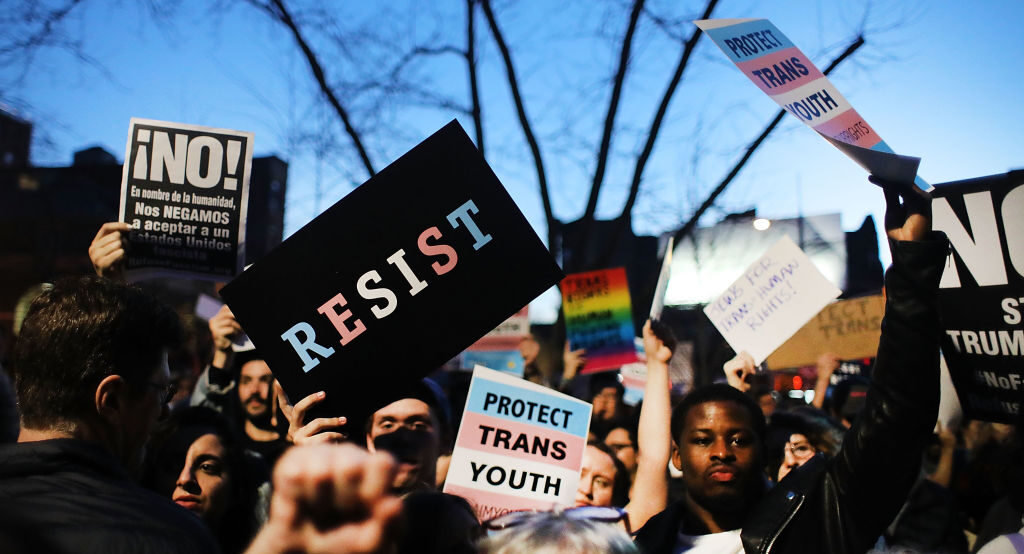If you’d told me that anything positive would come of me being hospitalised as a danger to myself in the winter of 2007, I probably would’ve laughed at you. That is, if I’d still been capable of laughter. By then I had sunk into a suicidal depression and I was sure I wouldn’t be around much longer.
But, as I recovered, I learned about cognitive behavioural therapy (CBT) — a deceptively simple practice in which one learns to recognise mental exaggerations called cognitive distortions that, when left unchecked, can make a person anxious and depressed. These include mental habits that are fairly self-explanatory, such as catastrophising and overgeneralising, but also some that take a little more explanation: negative filtering, for example, is seeing only the downside, and fortune-telling is believing that you can see the future — wherein, of course, you’re doomed.
A lot of the anxiety and depression that led to my condition in 2007 had to do with work. I became the president of the Foundation for Individual Rights and Expression (FIRE) in 2006, and as a result I had a front-row seat to the absolute worst kinds of campus illiberalism emerging at the time. The problem became a lot worse when Gen Z started going to university in 2014, with students making arguments in favour of censorship, deplatforming speakers and scholars, and policies punishing microaggressions — all of which relied almost entirely on cognitive distortions to justify. Given my history, I could easily see how this shift in the campus climate would be a disaster not only for free speech, but also for mental health.
I told my friend, social psychologist Jonathan Haidt, about it, and we started working on an article published in 2015 entitled “The Coddling of the American Mind” which we expanded into a 2018 book of the same name.
We predicted not only the coming explosion of major threats to free speech and academic freedom on campus, but also the concordant decline in young people’s mental health — all of which came from the same source. Now the data is in, and it shows that both the threat to campus free speech and the mental health crisis we saw coming was even worse than either of us expected.
Given this history, though, I was surprised to see Eric Kaufmann argue in UnHerd this week that the thesis of our work was primarily that the mental health crisis caused “wokeness”. While discussing Haidt’s new book, The Anxious Generation, Kaufmann connects Haidt’s thesis that “smartphone use, hyper-parenting and social media [are] the culprits behind the mental health epidemic” with the “explosion of Left-wing illiberalism on campus” that we discuss in Coddling — as if to say that the mental health epidemic caused the illiberalism on campus.
In reality, our argument is almost precisely the opposite: the ideology that Tim Urban has dubbed “social justice fundamentalism”, otherwise known as “wokeness”, is inherently depressing. Our book argues that teaching others the habits of anxious people results in both a mental health crisis and illiberalism on campus. They work and emerge together: one doesn’t cause the other.
The data shows that ideology, race and gender are all statistically significant predictors of self-reported mental health, with liberals having the worst self-reported mental health compared to moderates and conservatives, and women having worse self-reported mental health than men. What’s more, the interaction between race, ideology, and gender is statistically significant — with liberal white and non-white women having the worst self-reported mental health. This trend has also been reported by Zach Goldberg and Haidt using Pew Research’s data, as well as findings from Gimbrone et al.
Using FIRE’s 2024 Campus Free Speech Rankings data, we’ve seen that 36% of students reported feelings of poor mental health more than half the time. Out of these 15,000 students, 67% were liberal, compared to just 16% moderate and 17.3% conservative. To put it simply, the more students were likely to believe in “social justice fundamentalism”, the more miserable they tended to be.
People seem to be waking up to the fact that our educational institutions have done something quite cruel by teaching the younger generation the mental habits of anxious and depressed people. But it isn’t too late. We can teach kids to recognise and overcome cognitive distortions rather than lean into and accept them. We can promote resilience and encourage young people to be what Nassim Nicholas Taleb calls “antifragile”. If we finally decide to do something about the dysfunctional mental habits we’ve given our kids and change course, maybe something good came out of my 2007 hospital stay after all.










Join the discussion
Join like minded readers that support our journalism by becoming a paid subscriber
To join the discussion in the comments, become a paid subscriber.
Join like minded readers that support our journalism, read unlimited articles and enjoy other subscriber-only benefits.
Subscribe